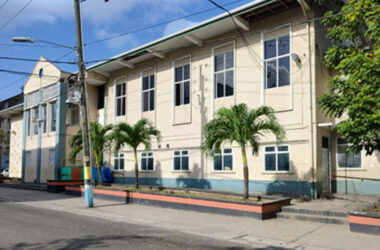A debate is now raging, primarily on social media, about government’s intention to abandon the Privy Council based in London, England, in favour of the Caribbean Court of Justice (CCJ) based in Trinidad and Tobago as Saint Lucia’s final appellate court.
Saint Lucians for and against the move have presented reasons for their respective positions. Unfortunately, there are others whose stance is purely political siding with what their respective party says.
What is good about all of this is that reasons for and against are being aired, giving those who are unclear about the advantages or disadvantages about leaving the Privy Council in favour of the CCJ, more information enabling them to arrive at a decision they feel is best for the country.
However, some see the ongoing debate as purely academic given that government has already made the decision for all of us.
Prime Minister Philip J Pierre in the just concluded 2022/2023 budget address confirmed that an amount of $300,000 was approved to facilitate Saint Lucia’s accession to the CCJ.
But does that mean that the ongoing debate and online discussions about what is best for Saint Lucia regarding the two courts should not be taken seriously?
We believe that the matter is serious enough to warrant nationwide discussion on the pros and cons, more so when trust is cited as a reason for staying with the Privy Council, implying a lack of trust for the CCJ.
The view has been expressed that with the CCJ being the final appellate court, CCJ judges could exhibit some degree of bias; if cases coming before them involve persons they may know and have a friendship with (either from their university days or other). This is a view held by those who perennially place foreign above local. It is an emotional judgment with absolutely no basis in fact.
“How do we get justice against the political class when their friends are sitting in the final court of appeal?” asked one Facebook writer.
Then there is the argument that since the Privy Council is not in or of the region, and is populated by persons, some of whom might have to be shown in an atlas where St. Lucia is, and who are bereft of knowledge of the traditions, customs, aspirations and culture of the people of the region, then that court is not the best option as a West Indian final court of appeal. Further, the reality is that St. Lucians, and indeed West Indians as a whole, aspire to independence, having, for the most part, shed the shackles of colonialism, should not rely on people in a faraway land to hand down their perception of justice to them when they are well able to do so themselves.
A very significant factor is the differential in cost between bringing (or defending) a suit at the Privy Council. One is reminded of the comment – you have a good case, but how much justice can you afford? The reality is that an appeal to the Privy Council is well beyond the reach of the vast majority of our people.
This Newspaper is firmly of the view that St. Lucia should, indeed must, adopt the CCJ as our final Court of Appeal. Having said that, however, the obligation of Government to widen knowledge of the CCJ and what it represents in our evolution is not met simply by saying we are going to change. We hope government will outline its reason/s for deciding on the CCJ as the country’s court of last resort as part of the general education of our citizens about the body politic.
The CCJ, since its inception in 2005, declared itself as a place for all citizens of the Caribbean under the slogan of “Your People, Your Region, Your Court.” It is committed to this idea.













